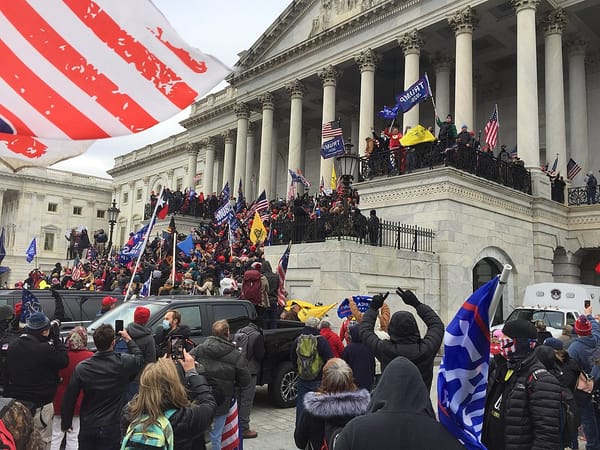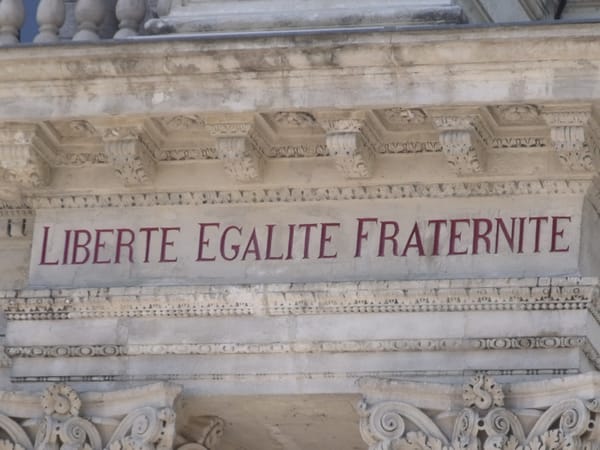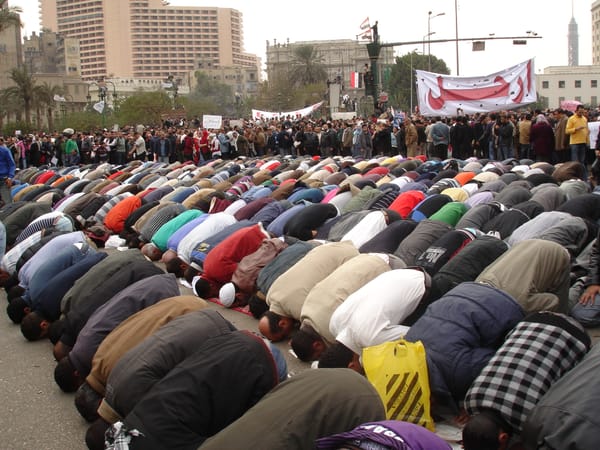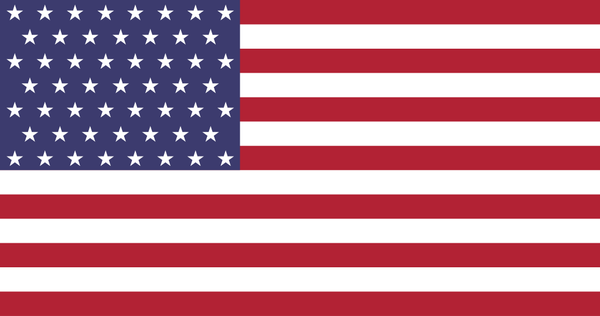Does Liberalism Mean Supporting Capitalism?
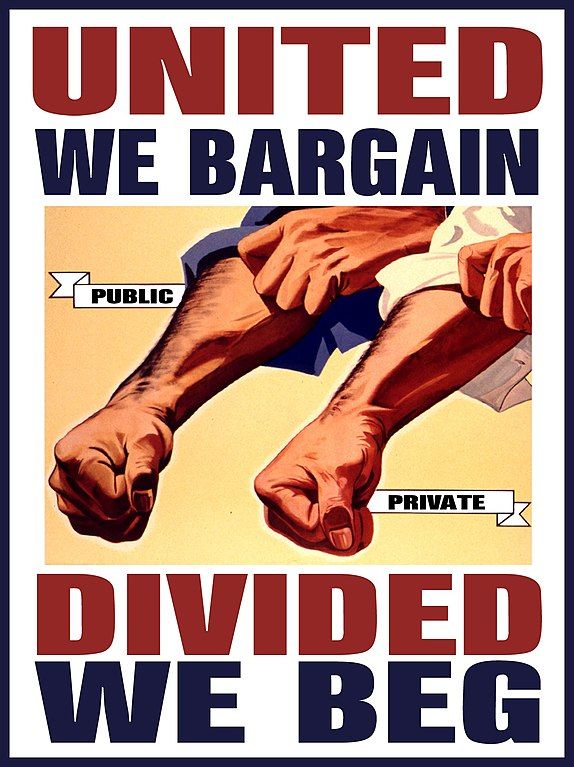
In those days I had seen little further than the old school of political economists into the possibilities of fundamental improvement in social arrangements. Private property, as now understood, and inheritance, appeared to me, as to them, the dernier mot of legislation: and I looked no further than to mitigating the inequalities consequent on these institutions, by getting rid of primogeniture and entails. The notion that it was possible to go further than this in removing the injustice—for injustice it is, whether admitting of a complete remedy or not—involved in the fact that some are born to riches and the vast majority to poverty, I then reckoned chimerical, and only hoped that by universal education, leading to voluntary restraint on population, the portion of the poor might be made more tolerable. In short, I was a democrat, but not the least of a Socialist…While we repudiated with the greatest energy that tyranny of society over the individual which most Socialistic systems are supposed to involve, we yet looked forward to a time when society will no longer be divided into the idle and the industrious; when the rule that they who do not work shall not eat, will be applied not to paupers only, but impartially to all; when the division of the produce of labour, instead of depending, as in so great a degree it now does, on the accident of birth, will be made by concert on an acknowledged principle of justice; and when it will no longer either be, or be thought to be, impossible for human beings to exert themselves strenuously in procuring benefits which are not to be exclusively their own, but to be shared with the society they belong to.
J. S. Mill, Autobiography
To many, being a liberal means supporting capitalism. In his book Liberalism the Austrian economist Ludwig von Mises made this point abundantly clear when he pointedly argued “…the program of liberalism, therefore, if condensed into a single word, would have to read: property, that is, private ownership of the means of production… All the other demands of liberalism result from this fundamental demand.” Barack Obama, no one’s idea of a conservative or fascist, declared in his 2009 inaugural address that “…the question before us [is not] whether the market is a force for good or ill. Its power to generate wealth and expand freedom is unmatched.”
Critics of liberalism have also long been committed to the idea that it effectively serves as the ruling ideology of capital. This position was most famously taken by Marx—whose own views of liberalism were on the whole quite complex—influencing generations of critical theorists for whom “liberal” is a slur. Things are more complex on the political right, where for decades militant anti-communism helped check conservatives’ willingness to be excessively critical of liberal capitalism. In the United States this was most often summarized as the “fusionist” synthesis. But increasingly, many conservatives—especially young ones— are willing to question both liberalism and capitalism, arguing that the two go hand in glove and should be equally criticized by those wishing for a virtuous society.
There are many good reasons for conceiving of liberalism and capitalism as reducible to one another, or at least defined by a deep elective affinity. Not only has this historically been the case, but there are strong philosophical links between support for liberal freedoms and being committed to economic freedom. Nevertheless, there is good reason to challenge the idea that support for liberalism necessarily entails support for capitalism. Indeed, in many circumstances, genuinely holding to liberal principles will require confronting capital. In those circumstances we must ask where one’s loyalties really lie: with liberalism or with capital.
Liberalism, capitalism, and market society
Contra Mises’ crude account of liberalism as being first and foremost a defense of property, its roots are considerably more complex. His version and any account of liberal principles that foregrounds property and capitalism to the exclusion of all else simply embrace the vulgar Marxist argument that liberalism is no more than an ideological smokescreen for capitalist power and inequality.
A traditional line of argument with considerable merit holds that the roots of liberalism can be traced back to the monotheistic emphasis on the individual soul’s salvation, and the notion that each person possesses a fundamental dignity as the beloved creation of God. This in turn was a crucial theological theme during the Reformation, which loosened the authority of traditional religious institutions like the Catholic Church and opened the space for greater worldliness and liberty of thought and expression. In his seminal book The Invention of Autonomy the philosopher J. B. Schneewind rightly points out that “For both Luther and Calvin, then, morality as such concerns human life on earth. It extends no further…Because we cannot by ourselves do anything to bring [God] to give us grace, he is in an important sense above the human community and not a part of it.”
As chronicled in Charles Taylor’s seminal A Secular Age strands of Reformation evolved into secularization, which had the effect of undermining political theologies claiming hierarchies of political and social power were eternally set and endorsed by God or any other transcendent metaphysical order. Equally important were technological innovations like the printing press, which helped generate a literate middle class for the first time. Educated individuals had access to unprecedented amounts of information, and also came to dialogue and confront one another directly about their beliefs and interests. Oftentimes this involved plenty of violence, as when the republican dictator Oliver Cromwell crushed the more egalitarian levellers in the midst of the English civil wars. But it was also a crucial catalyst for the emergence of what Habermas in The Structural Transformation of the Public Sphere calls the liberal or “bourgeois” public sphere, which both reflected and transformed an emerging political culture increasingly focused on participation and the consent of the governed. This would become explosive during the Revolutionary period, where concerns about property were a catalyst for liberal insurrection. But so were anxieties about tyranny and freedom, authoritarian fiat and participation, and of course individual rights and at least socio-political equality.
The liberal alignment with capitalism comes out most clearly in two major streams of thought. The first is classical liberals’ espousal of what C.B. Macpherson terms possessive individualist philosophy. As put forward by Hobbes, Locke and others, possessive individualists held that the fundamental unit of political philosophy was the singular person. They entered into the world as moral equals who were owners of their bodies and the labor they produced, and owed little or nothing to anyone else, let alone to society.
Consequently, despite beginning as moral equals, individuals became legitimately unequal through their efforts. This could lead to contexts where some were compelled to sell their labor to those who possessed affluence in return for a wage, inverting the original expectation that each individual owned themselves and the product of their labor. But this was defended on the grounds that freedom entailed the ability to buy and sell almost anything, which to possessive individualists included the labor power of others. In the future this would gestate into the right-wing liberal and libertarian moral arguments that capitalism was morally justified. Usually this entailed linking arguments about personal freedom and individual merit.
By exercising individual liberty in laboring and accumulation within the context of capitalist society, those who were more meritorious or at least more talented would rise to the top and deserve to be there. The ugly downside to this was of course that the many who fell to the bottom were also conceived as deserving to be there; a position very different from the Christian view that poverty was inevitable and not necessarily the fault of the poor.
Another important stream of thought was the consequentialist and later utilitarian arguments for capitalism. These link in more complex ways with the liberal tradition, because there isn’t a necessary relationship between a moral commitment to securing the greatest happiness for the greatest number and supporting either liberal freedoms or capitalism. After all, if it turned out living in a benevolent authoritarian command economy made the most people happy, a consistent consequentialism might insist we do that.
But utilitarians early on came to align with an argument for capitalist markets, contending that allowing individuals the freedom to participate work, trade, and consume as they wished would not only secure their private happiness. It would also foster economic productivity, which would lead to greater prosperity for all over time. This case was made most persuasively by F. A. Hayek in the 20th century, whose “Kantian consequentialism” was notably hostile to the increasingly banal meritocratic temptations one sees in other defenders of liberal capitalism. In The Constitution of Liberty and other works, Hayek acknowledged that through exercising their freedom in the market individuals pursue both their own utility and inadvertently that of others. But while Hayek believed we could be objectively certain that overall utility would increase with economic growth, what increased or decreased utility for private individuals was subjective. What made the market special for Hayek was its capacity to direct incentives through spending to producers, which gave them accurate information about what it was that consumers wanted. It may be the case that in gratifying the subjective demand of consumers for pornography some people would get rich, while the more meritorious producers of great art would remain unknown and poor during their lifetime. But Hayek insisted this shouldn’t dissuade us from recognizing the boons of the market, and seeing that any attempt to constrain it in line with some higher principle of justice—whether by meritocracy or social justice—would only inhibit freedom and make everyone less happy in the long run.
Why liberalism doesn’t need capitalism
Of these two streams of thought, the latter is by far the more persuasive. But both have been tremendously influential in the liberal tradition. Yet influential doesn’t mean necessary, and in what follows I will build a liberal case for why a defense of capitalism isn’t integral to liberalism. This will entail criticizing both streams of thought from a left-liberal standpoint. Indeed if I am correct, liberals should be extremely critical of capitalist markets where they pose a danger to principles they must cherish more highly.
Firstly, let’s take the fundamental theoretical claim of possessive individualists that each person is equal to all others; rejected by Ludwig von Mises amongst other “liberals” who reduce the doctrine to the mere defense of market society. The principle of moral equality is often held to be an axiomatic truth by many moderns, though it is in fact not. Many conservatives have been committed to the idea that there are demonstrably superior people who deserve more than others. But let us put that aside for now. If one does hold that all individuals are moral equals this has a deep affinity to the argument for personal freedom. For someone to feel entitled to compel me to adopt their vision of what I should or should not do, they’d have to assume a kind of superiority which made them a better judge of what would be a good life for me. But if we deny anyone that kind of superiority, it follows that I should be free to lead the kind of life I believe to be good and others should be equally free to do so as well. In this respect liberalism comes to be defined by a shared moral commitment to freedom and equality.
Now does this require a commitment to a kind of possessive individualist philosophy or capitalism? I don’t think that it does. While being free does require a strong commitment to personal autonomy and the freedom to engage in economic exchange, it doesn’t follow that one needs to attach that to an expansive conception of property rights enforced by a coercive state. Nor that we should attach such weight to the outcomes of exchange that it can monologically override other moral principles or concerns that liberals should have. This was the serious mistake of the libertarian philosopher Robert Nozick, who in Anarchy, State, and Utopia contended that there could be no interference with the outcomes of economic exchanges which didn’t compromise the natural right to liberty of individuals. Where economic disparities become sufficiently stark they result in the state being co-opted by capital and working in its interests first and foremost, we begin to see the political legitimacy of the state corrode since it is no longer respecting the equality of citizens. It neither accords them equal respect, equally represents their interests, nor even enables them to participate in determining the coercive laws that will govern them.
As Rawls’ would put it, the equal political liberties of citizens—so important to the republican ethos—becomes severely compromised. In such instances a fundamentalist commitment to property and economic liberty in fact comes to constrain both the personal and social liberty of liberal citizens. We see that today in the highly unequal US, where despite being the “land of the free” there are more prisoners than any other country and where empirical research demonstrates how the government increasingly resembles a managerial cabal for the ruling class. Principled liberals shouldn’t be monologically committed to a constipated vision of possessive individualist freedom and equality, but instead seek one that is as rich and multifaceted as people actually are in fact.
The second stream of thought about liberalism, utilitarianism, and capitalism is a more convincing position. One of the important criticisms of figures like Hayek is observing that the relentless pursuit of strict equality for its own sake will end up constraining freedom and happiness while in fact not actually producing all that much equality. This was of course the case in the Soviet totalitarian state. And it is also true that a politics of resentment, which holds that no one can have anything which I do not have, and seeks to take not to improve the lot of the least well off but to punish, is a very ugly thing.
But on the other hand, Hayek and his counterparts were also partly wrong and partly disingenuous in their arguments. The Nordic model of social democratic organization and redistribution, well examined by George Lakey in his book Viking Economics, has proven far more successful along virtually every metric of human flourishing than its more stridently capitalist competitors. In some fields it is not even that close. This includes securing other kinds of liberal freedoms we should prioritize.
Moreover their arguments about the importance of economic freedom to produce the best outcomes runs very counter to the neoliberals’ long history of arguing that the state and international institutions must be active in using their monopoly on force to create the best conditions for the kind of nihilistic market society they idolize. This most notably includes using coercion to defend a very expansive conception of property rights and putting them beyond the freedom of political activists to change. Probably the most infamous recent example was the neoliberal Chilean constitution enacted by dictator Augusto Pinochet, who came to power in a coup that destroyed the democratically elected socialist government of Salvador Allende in 1973. It took 40 years of political activism to finally bring an end to this instance of despotic legalism, and at the cost of many lives. As Quinn Slobodian would put it in his book Globalists: The End of Empire and the Birth of Neoliberalism, statist law has been used to “encase” capitalism beyond the reach of those it impacts. This should deeply offend the sensibility of all liberals who believe that consent and political participation are the only things that can possibly legitimate the exercise of coercion.
Looking ahead
What emerges from this is the realization that liberalism can in fact exist quite happily without much need for at least the most militant forms of capitalism. It can even be better off without it. To the extent liberals seek to secure human freedom and equality through liberating people from domination, they should be sensitive to just how damaging it is to allow extraordinary power to concentrate in the hands of capital. Socially democratic liberal states like the Scandinavian countries have well understood this, and it is time their North American and Anglo-counterparts recognized it.
The question then becomes whether we can do even better than social democracy in confronting capitalism while still remaining true to liberalism. I think we can. One of the most prominent possibilities would be through eroding the power of capital by a democratization of the workplace, starting with a rejuvenation of the labor movement. We’ve already seen some important steps in that direction. Who would have ever thought we’d see a unionized Starbucks? This was the position of liberal socialists like J. S. Mill, who in later editions of his Principles of Political Economy endorsed worker owned cooperatives and said “nothing in principle in economic theory” spoke against experimenting with producing without the need for capitalists. Workplace democracy and the labor movement are also crucial to rejuvenating the cause of left-liberalism in many countries, since they can provide a permanent political counterweight to the power of money. None of these steps would be a silver bullet to our current problems. But they would constitute progress towards a more just society that reflected the liberal commitment to robust freedom and equality for all, rather than just the affluent few.
Featured Image is United We Bargain, Divided We Beg, by DonkeyHotey

